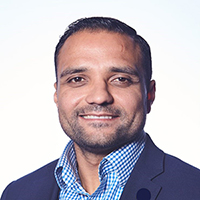Keynote speakers

Anton Scheurink
Professor in Neuroendocrinology
Faculty of Science and Engineering
University of Groningen
Title: EAT and NEAT
Eat and NEAT stands for the control of food intake and energy expenditure and, in particular, the role of the brain on this. It starts with the hormonal signals that inform the lower brain areas controlling body weight homeostasis and we then slowly move up in the brain adding evolutionary pressure, physical inactivity, hedonics and reward and even addiction into the equation. It may explain why so many people are nowadays overweight and why it is so difficult to lose weight. But the lecture will end the with good news and that is NEAT.
Bio:
Anton Scheurink wanted to be a medical doctor but never got in Medical School. He decided to study Biology instead, focusing on the role of the brain in food intake and energy expenditure, with special emphasis on metabolic diseases such as Type 2 Diabetes and obesity and eating disorders such as Anorexia Nervosa. He received his PhD in Groningen in 1989, did a two years postdoc at the University of Washington in Seattle (USA) and returned to the RuG on a 5 years KNAW fellowship in 1991. Anto Scheurink is currently a professor in Neuroendocrinology and he has a close collaboration with eating disorders centers in Stockholm (Sweden) and Cincinnati (USA). During his career, his focus in the research on eating disorders slowly shifted from the homeostatic areas in the hypothalamus to the reward (and addiction) pathways higher up in the brain. Finally, he was University of Groningen lecturer of the year in 2014.

Mirjam Kaijser
Surgeon (Gastrointestinal surgery incl. bariatric/metabolic surgery)
Medical Centrum Leeuwarden
Centrum Obesitas Noord Nederland
Title: If prevention, and all else, fails - an introduction to bariatric surgery
What if you’ve been gaining weight since childhood and feel the social stigma of obesity every day? What if you’ve tried to lose that weight over and over, without lasting results - except feeling hungry? Would you accept this or would you turn to the most radical, but most effective, treatment: bariatric surgery. I will discuss the most common bariatric procedures, their effects and side-effects. As a surgeon, can I defend to operate on an ‘otherwise healthy’ but obese body? And can life-style intervention prevent relapse of this chronic disease? To operate or how to operate – that is the question.
Bio:
Mirjam Kaijser graduated from the RUG Medical School in 2008 and pursued her surgical career since. After training in gastro-intestinal surgery she started working in the Centre for Obesity North-Netherlands in 2017, which is one of the largest bariatric centers in the Netherlands. With the multidisciplinary bariatric team, 900 morbid obese patients are treated every year and around 5000 previously treated patients visit the outpatient clinic. With her family she lives in Haren and loves the outdoors as well as a hot cup of coffee. She dreams of an early retirement; this can become true if we all together manage to stop the pandemic of obesity and surgical treatment becomes obsolete.
Read interview with Mirjam Kaijser.

Stuart Flint
Associate Professor of Psychology
University of Leeds
President of Scaled Insights
Title: The pervasiveness and impact of weight stigma and discrimination; why we need to act!
There is now an abundance of evidence demonstrating that weight stigma is pervasive, and has an impact on a policy, community and individual level. As such, people living with overweight or obesity experience weight stigma and discrimination in many settings within society including healthcare which may have a range of effects on individuals including increased mental and physical health concerns, as well as leading to maladaptive behavioural responses such as avoidance or delay in seeking healthcare or disordered eating behaviour. This talk will provide an overview of the evidence relating to the pervasiveness and impact of weight stigma and discrimination with a focus on public health policy development, framing and initiatives, providing opportunities to critically reflect on current approaches that may reduce their effectiveness.
Bio:
Dr Stuart W. Flint is Associate Professor of Psychology at the University of Leeds, and President of Scaled Insights. Dr Flint is also an Honorary Academic for the Office of Health Improvement and Disparities. He is the Chair of the Obesity Policy Engagement Network (UK), and a contributing member to the All-Party Parliamentary Group (APPG) on Obesity and APPG on a Fit and Healthy Childhood. He contributes evidence to several other APPGs on health and inequalities experiences by marginalised groups. He has a specific interest and expertise in stigma and discrimination, leading work internationally and nationally to highlight the pervasiveness and impact of stigma and discrimination on obesity. He has developed interventions to reduce stigmatising attitudes and discriminatory behaviours working national and local governments, health systems, education, media, charities and the general population. Dr Flint has published widely in high impact journals including the Lancet, Nature Medicine and the British Medical Journal, and is regularly interviewed by media outlets (e.g. BBC, Sky News, and The Times).
Read interview with Stuart Flint.


